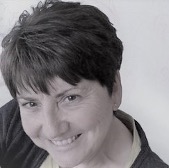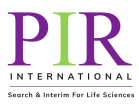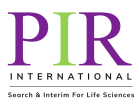Helen Slaski
BioLeader Interview – Helen Slaski, Chief Executive Officer Cambridge Science Centre (October 2021)

Qualifying as a Pharmacist from London School of Pharmacy (now UCL) and specialising in Pharmaceutical Engineering Sciences, I started my working career with GSK in operations management, moving to international production support and subsequently as Executive Assistant to the Group Technical Director. Escaping to complete an MBA at London Business School, I have since had forays into strategic consultancy, newspaper and magazine publishing, FMCG manufacturing, medical device design and development and an organisation of international language schools. I was thrilled to join Cambridge Science Centre as CEO in January 2017, an organisation committed to encouraging the STEM subjects at UK schools.
Key milestones in your career journey to date?
- My working life can perhaps be best characterised by some fantastic opportunities at just the right time and being reckless enough to seize them. My career journey has consequently not been planned but perhaps described best as “emergent”.
- In the mid-70s and whilst mid-way through university, I was offered the opportunity to work for Syntex in Palo Alto, CA; a truly life changing experience for a sheltered girl from an all-girls school and more used to staying close to my family hub.
- My progress into independence truly began; I got to fly Laker Airways, to taste my first McDonalds, landed up in a great flat share with a former flower-child who has become a lifelong friend and, importantly for my future career, my first insight into the FDA.
- Glaxo in the 80’s was an extraordinary organisation to spend time in. Looking for paid employment to fund more overseas travel, a family friend pointed out an advert for young industrial pharmacists at Glaxo. Determined to spend no more than a year or two before setting off again, I landed the job at the Barnard Castle site in an operational management role, just before the launch of Zantac, and got to grips with FDA regulations before they were really well known in the UK.
- The leadership style was so enlightened; colleagues at all levels were trusted and responsible to deliver, with a now almost unheard-of culture to be allowed to fail and learn from that. Inevitably there were very few females in operational leadership roles but that seemed irrelevant back then and opportunities for other roles within the company came, including plenty of overseas travel; I ended up staying nearly 10 years!
- The opportunity to complete an MBA at LBS equipped me with such a wide range of business skills; an amazing experience from which life-long friends have emerged, as well as a huge network of colleagues around the world, and subsequent opportunities to work in other sectors.
- A very spontaneous move to Cambridge in the early 00s, changing career direction again, meeting amazing people and constantly moving out of my comfort zone has been so exciting.
Who has had the greatest influence over your career?
- My parents provided me with a fabulous foundation on which to build my career, and life, generally; always supportive and without judgement or trying to influence. They probably had lots of nail biting themselves as they watched a good career stopped in its tracks when I decided to travel the world or took on projects at what must have seemed a whim. Always there to support and help and, most important of all, listen. My Dad was born in Poland, and had an arduous, and sometimes harrowing, time during the war years, eventually arriving in the UK in 1947; those tough experiences impacted us all and have ensured our values are rooted and focused on the fundamentals of life.
- I have gained some great nuggets from many bosses, colleagues and places I have worked with and in; and cannot begin to list everyone who has supported me along the way, but you know who you are!
Your approach to spotting and developing top talent?
- Working on the premise that everyone has fundamental gifts; I try to tease out strengths that young people, in particular, may not realise they have, create opportunities for them to use, and build on them, to best effect. And, of course, on the other side of the coin – managing expectations!
- Giving people the same opportunities that I had; responsibilities in early careers and guiding from behind – things will go wrong but lots can be learned from mistakes and failures.
What attributes make an outstanding leader in today’s world?
- There is a Japanese saying – there is no leadership without followship; hence the skills to encourage those to follow you, like emotional intelligence and authentic behaviour, go a very long way.
- The rate of change is enormous and unpredictable. So, situational leadership seems hugely relevant these days, increasing the need to flexible enough to pivot or flip a business plan or direction, to accommodate external factors beyond our influence.
- The future is already here if not always equally shared so keeping eyes open for future trends already visible now is hugely important.
- Building a culture and lifestyle to retain and advance staff; it’s not always about money.
How do you create a culture of continual learning, innovation and curiosity; and how might volunteering contribute towards this?
- CSC’s fundamental culture is one of reflective practice; a key tool for our “customer” facing team who deliver to children and young learners and a part of our science capital approach; so continual learning is built into our everyday activities.
- Curiosity is one of our mission goals so we live and breathe this and endeavour to make our engagements as creative, fun and exciting as possible – thus harnessing plenty of innovation.
The 2020 pandemic has changed the way we all work, possibly forever; what will remain beyond Covid and what will you welcome back?
- As a hands-on science and discovery centre, COVID lockdowns and the closure of schools did dramatically affect our work –we rapidly “pivoted” to digital formats but the staff work here because they love being in front of audiences and working directly with children and young learners, so it was particularly tough for them.
- We had to adjust to find a way of moving our in-person work to working individually at home and this took some adjustment for us all. I am immensely proud of our team and how they took on the challenges, adapted their way of working and cheerfully carried on delivering fantastic engagement in novel ways to meet the restrictions of the pandemic.
Regulators have adjusted their pace to meet the challenges of Covid; how can you foresee this might play out with the approval of future non-Covid therapies and technologies?
- Covid appears to have been a disruptor for the better, particularly as far as the regulatory landscape is concerned.
- It would appear that the development process at corporate pharma, as well the regulatory organisations, have acquired the art of greater collaboration and faster decision-taking, thus making the best of the learning from the fast tracking of their processes.
What will be the biggest technological transformation in the industry over the next 5 years?
- I see technology as a means to an end and not a driver of itself and I think we need to spend far more resource into building circular solutions or “economics in the round” that technology can then enable.
- If pushed, my money (and hope) is on advances in battery technology!
What is your hidden talent or something that might surprise others about you?
- Though I may seem analytical, I actually use and trust my instincts a lot.
- And, despite being naturally really shy, networking events and rooms full of unknown faces are a big struggle! But, I do relish new experiences and adventures as well as learning unexpected things from new situations.
Your simple philosophy on life?
- Don’t let someone else’s opinion become your reality. Challenge and change perceptions.
- It’s a bit trite, but I really do think that if you want to do or be something hard enough, you will find a way to make it happen.
Words of wisdom?
- Best Advice I was given:
- Go big or stay home!
- My English grandmother used to say that life’s too short to lick a stamp – I’ve never really quite understood the stamp bit but I do think you need to live your best life.
- And my Dad always said that any plan is better than no plan.
- Advice I’d give:
- Make the most of every chance that comes your way. Nothing in life has to be fixed so don’t be afraid to make a change and to dream big – as I very probably annoyingly say at home, there’s no such thing as can’t!
- Trust your instincts and believe in yourself.
- What I wish I’d known:
- Not to worry so much about what people may think and in aiming at perfection but push the boundaries more, be braver and bolder as the world really won’t crash down around you.
Click here to read more of our BioLeaders interviews.

